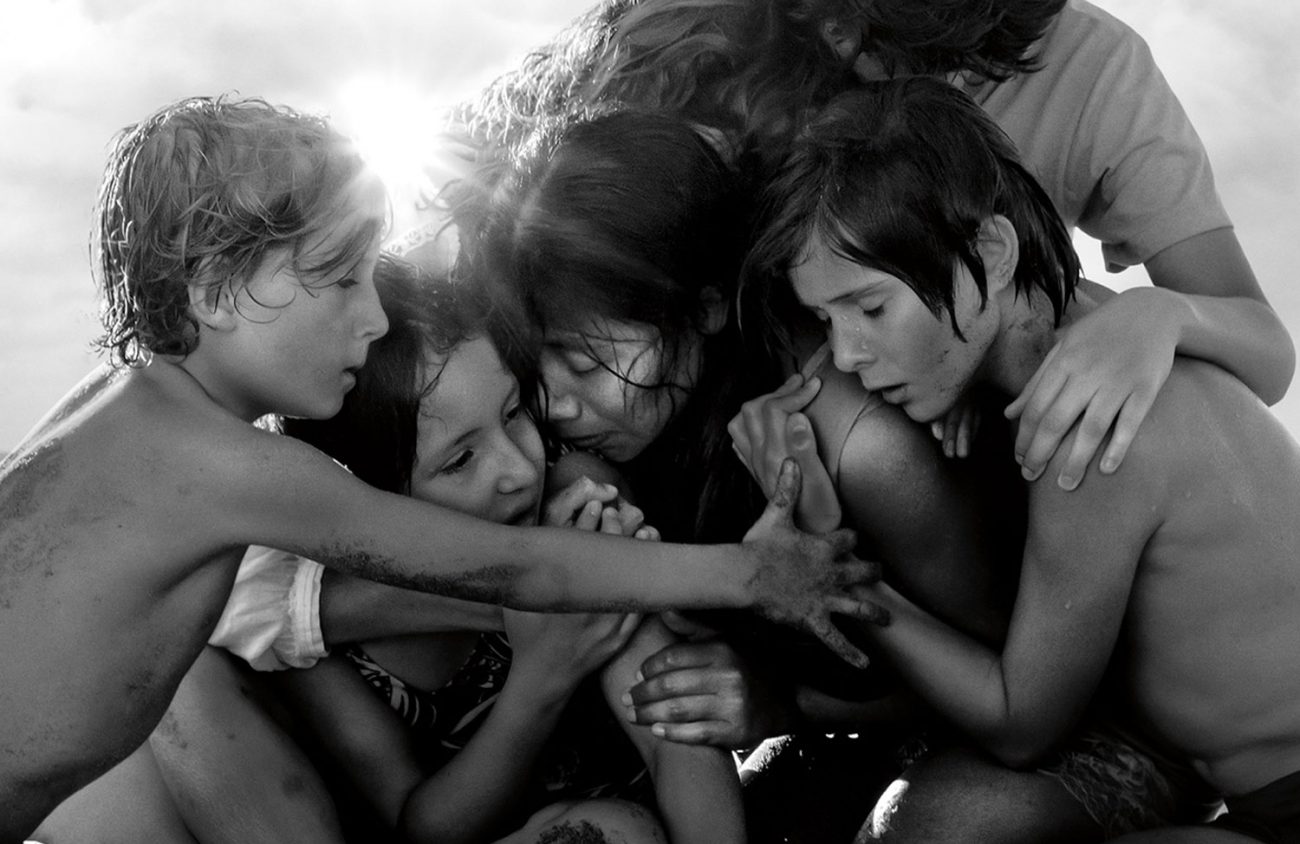For moviegoers who recall the sumptuous, thrilling spectacle of Alfonso Cuaron’s 2013 blockbuster Gravity, in which Sandra Bullock and George Clooney were pelted with zooming space debris as they swam suspended in glorious 3-D, the director’s latest film might come as a surprise.
Now in theaters as well as being available for home viewing on Netflix, Roma is an expansive love letter to the redemptive side of class relations in early 1970s Mexico City, shot in stark, panoramic black-and-white and largely stripped of any extraneous emotion-yanking machinery like booming music scores and fancy camerawork.
Forgoing the anaerobic eternity of zero gravity, Cuaron grounds his new film in matters that are entirely earthly, though the implications are no less celestial. He has exchanged the swoon of space for the sweep of time. The only thing orbiting around Roma is a tiny cluster of human relationships, and their silent collisions take place within the obliterating clangor of history.
Named after the Colonia Roma neighborhood in which the film is mostly set, Roma tells the story of Cleo (Yalitza Aparicio), a Mixtec maid in the household of a wealthy family whose patriarch, the disheveled doctor Antonio (Fernando Grediaga), suddenly abandons everything, leaving his unhinged wife, Sofia (Marina de Tavira), to hold things together — including the illusions of four children, who are told their father is away on business in Quebec.
Of course — and this “of course” hints at the film’s strengths as well as at the sentimental weakness at its core — it slowly becomes clear that, amid all the chaos and uncertainty unleashed by the doctor’s abandonment, the true spiritual anchor of the family is Cleo, whose silent dignity and essential goodness provide a thread of normalcy through the domestic disorder. Long-suffering but hardly meek, Cleo is at once scapegoat and savior; she stoically endures Sofia’s abusive outbursts while simultaneously providing an emotional touchstone for her employer’s matriarchal flailing.
Cleo, in short, plays both Jesus and Virgin Mary to this falling-apart family, a symbolic status that is even further complicated when she is impregnated by Fermin (Jorge Antonio Geurrero), a feckless son-of-a-bitch who — mirroring the good doctor’s behavior — abandons her for a life of martial arts training in the barrios. Instead of firing her, Sofia embraces Cleo’s condition, which provides a kind of focal point for all the fragile and frayed energies that have entangled the family. In this way, sentimentality is wrapped inside sentimentality: the noble poor servant is accepted and protected by the noble rich woman, creating a chain of causality that signals the making of a myth — a fairy tale wrapped in the garb of social realism.
This, then, is the nugget of narrative that drives Roma, though its recitation hardly captures the grand experience of watching the film. Cuaron masterfully situates this domestic drama inside the tides of daily life as well as the oceanic flow of history itself, including the revolutionary fervor of Mexico City at the beginning of the ’70s. The movie is by turns breathtaking and mundane.
Cuaron is not only the film’s writer and director but its cinematographer as well, and his camerawork is extraordinary; using hypnotic panning shots that seem to eavesdrop on the action, he channels everyone from Fellini to Cassavetes to evoke a deep feeling of reverence for his subject — a nostalgic love seeps through every scene, regardless of its emotional devastation. The result is an epic film that sounds the intimate vibrations of a chamber piece, like Chekov nestled inside Tolstoy.
At heart, Cuaron is a romantic, as was evidenced in Gravity, where an astronaut’s earthbound traumas (a dead child) are miraculously healed with a galactic flair that is no less affecting for being entirely out of proportion to the expense involved. Same goes for Roma, in a sense: Mexico’s history of class warfare and systemic poverty is somehow resolved in the figure of a pregnant Mixtec maid whose sufferings and sacrifices resurrect — through literal baptism, no less — the lives of the wealthy. It’s a tempting myth, resting as it does on the idea that, deep down, the master loves the slave and the benefactress redeems the peasant, and vice versa. Upon the backs of the poor, apparently, we also heap the balm of our guilty consciences.
Whether this is a vision of healing and redemption, or rather wish fulfillment and an erasure of reality (Marx’s “false consciousness” in action), depends entirely on your orientation toward the world as it is, and as you want it to be. Roma is, for better or worse, Cinderella for the 21st century. It’s a powerful film, beautiful and compelling, but to what ends is difficult to say.
